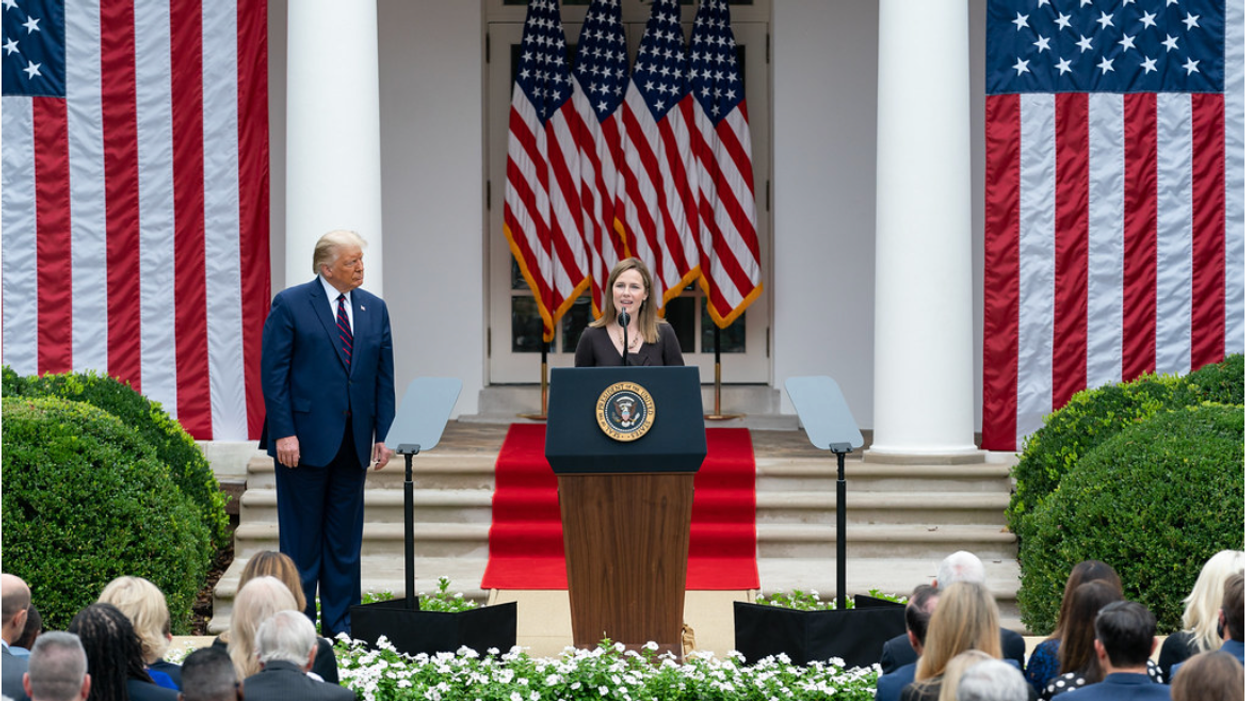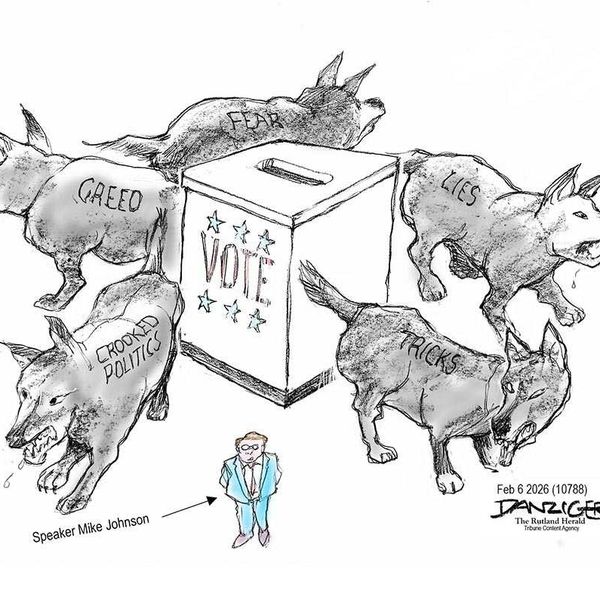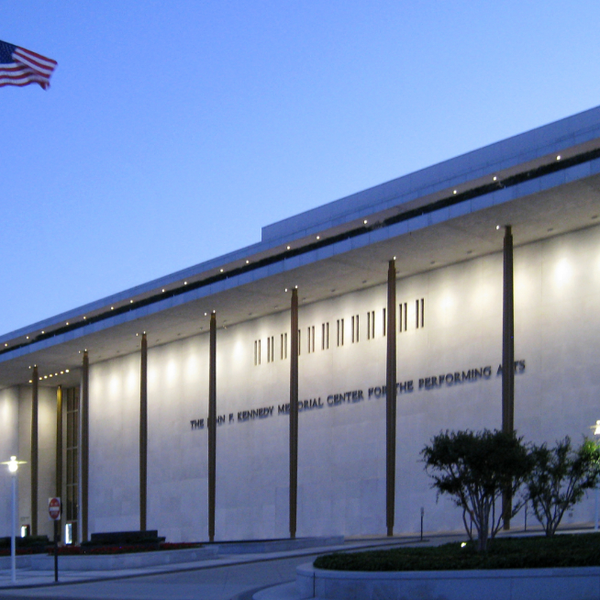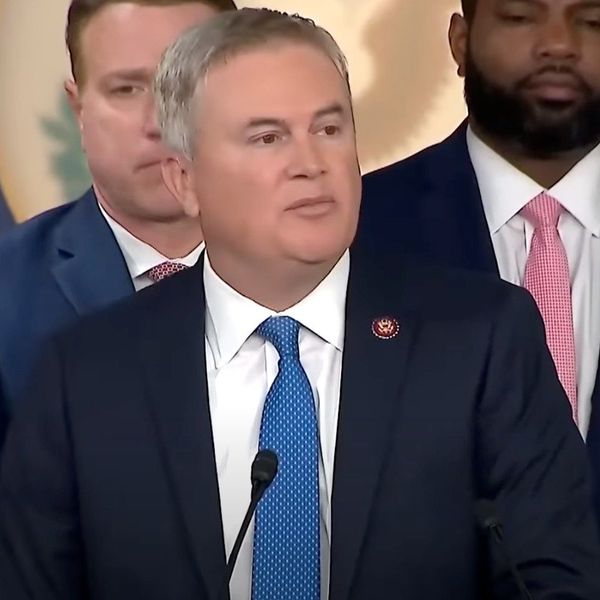
Justice Amy Coney Barrett at White House event with Donald Trump
Like a mob boss looking for payback, Donald Trump wanted the Supreme Court to do him two favors heading into the November election: keep him in power and keep him out of jail. To its everlasting credit, the court quickly declined to deliver on the first. Even though Trump had nominated three arch-conservatives to the bench—Neil Gorsuch, Brett Kavanaugh and Amy Coney Barrett—the court rejected his baseless challenges to the results of the election.
It took the court far too long to screw up the courage to decline the second favor, but in a one-sentence order issued on February 22, the court dismissed an emergency petition Trump's lawyers had filed last October to stop Manhattan District Attorney Cyrus Vance Jr. from enforcing a critical grand jury subpoena issued to the former president's accounting firm—Mazars USA, LLP—as part of a wide-ranging criminal investigationinvolving Trump's business practices.
Pending the court's ruling on the petition, Vance had agreed to pause enforcement of the subpoena. And in the meantime, as the court dithered, New York's five-year statute of limitations continued to tick away, threatening to derail the entire probe.
The investigation can now move forward, full speed.
Of all the potential avenues for indicting Trump now that he is out of office and has lost the immunity from prosecution that comes with the presidency, Vance's probe, which began in 2018, offers the most immediate promise. Although New York grand jury proceedings are secret, it has been widely reported that Vance is investigating Trump not only for the hush money paid to pornographic film star Stephanie Clifford, aka "Stormy Daniels," and onetime Playboy magazine model Karen McDougal, but also to determine if other aspects of Trump's private financial dealings have violated state fraud and income tax laws.
The Mazars subpoena is a key component of Vance's inquiry. It demands multiple years of Trump's personal and corporate federal and state tax returns and other financial documentation, dating back to 2011.
As some commentators have noted, information from Mazars could help prove that the Trump Organization used deceptive accounting techniques to inflate the value of assets when applying for bank loans and insurance while understating values to reduce tax bills. Documents from Mazars could also help establish that Trump or members of his family acted with the knowledge and intent needed to prove the commission of financial crimes.
Usually, the Supreme Court rules on emergency petitions expeditiously, often within a matter of weeks, or even days. So, what was behind the inaction in this case? Was there a legitimate reason for the inordinate delay, or were political considerations in play?
The court itself isn't saying. Unlike elected politicians, the justices don't issue press releases or regularly speak to the media. In the absence of an official explanation, the reason for the delay appears to lie in the ideological orientation of the court, which has shifted sharply to the right since the death of Justice Ruth Bader Ginsburg last September.
The court's conservatives now outnumber its liberals, 6-3. They determine the substantive outcome of most cases as well as the timing of decisions. But despite the backbone they displayed in rebuffing Trump's 2020 election complaints, the conservatives may not have been willing to abandon Trump to deal with Vance and his prosecutorial team while he was still president.
Whatever the reason, there was no good excuse for the more than four-month delay on the Mazars subpoena, especially because the court was already familiar with the subpoena and the facts and issues it raised. Indeed, the subpoena was the subject of the court's historic 7-2 decision last July, which recognized the authority of a state grand jury to demand documents from a sitting president.
Writing for the majority in last year's case, Chief Justice John Roberts reached deep into the history of U.S. constitutional law, as I have noted before, citing the legendary Chief Justice John Marshall's approval of subpoenas issued to President Thomas Jefferson in the 1807 treason trial of Aaron Burr. Roberts' opinion was also layered with repeated references to the cases of United States v. Nixon and Clinton v. Jones.
In the process, Roberts rejected both the claim raised by Trump's private attorneys that sitting presidents enjoy "absolute immunity" from state criminal investigations, as well as an alternative contention advanced by the Trump Justice Department that state prosecutors must demonstrate a "heightened" standard of need before gaining access to the president's records.
Roberts and the majority, however, stopped short of ordering compliance with the subpoena. Instead, they remanded the case to the lower federal courts to permit Trump's attorneys to argue the subpoena was overly broad in scope and issued in bad faith. Afterward, in short order, both the federal district court judge assigned to the litigation in Manhattan as well as the 2nd Circuit Court of Appeals upheld the subpoena, setting the stage for the Supreme Court to resolve the matter once and for all.
Lacking any sound basis to invalidate the subpoena, Trump's attorneys were obviously counting on continued delays to keep their client out of jail. But despite the rejection of their emergency petition, they may not be done trying yet.
According to CNN, the disgraced ex-president's lawyers are preparing to file a new petition with the Supreme Court, requesting a full hearing with oral arguments and a new briefing schedule to review the 2nd Circuit's ruling. If granted, such a petition could impose additional delays and restrictions on Vance's investigation.
Trump, for his part, has responded to the court's order in typical fashion, releasing a statement lambasting the order as a continuation of the "witch hunt" against him. "The Supreme Court never should have let this 'fishing expedition' happen, but they did," the statement asserted. "This is something which has never happened to a President before, it is all Democrat-inspired in a totally Democrat location, New York City and State, completely controlled and dominated by a heavily reported enemy of mine, Governor Andrew Cuomo."
To restore the public's faith in judicial independence, the court should reject any further efforts to undermine, limit or suspend the Vance investigation. In the aftermath of Trump's shameful acquittal in his second Senate impeachment trial, the court should stand aside and force Trump to face accountability.
Now a private citizen, Donald Trump deserves no more deference or protection from the judiciary than any other criminal suspect. It's high time to bring him to justice. Nothing less than the rule of law is at stake.
Bill Blum is a retired judge and a lawyer in Los Angeles. He is a lecturer at the University of Southern California Annenberg School for Communication. He writes regularly on law and politics and is the author of three widely acclaimed legal thrillers: Prejudicial Error, The Last Appeal, and The Face of Justice.
This article was produced by the Independent Media Institute.
- Trump Treating Supreme Court Pick Like An Episode Of 'The ... ›
- Trump Selects Neil Gorsuch, Extreme Conservative, For Supreme ... ›
- Kavanaugh Squirms As Senator Reveals Big Money Behind His ... ›
- Trump's Mitch: McConnell Is The Most Disliked Senator - National ... ›
- For Truly Grotesque Hypocrisy, Meet The Judicial Crisis Network ... ›
- Stunning CNN Supercut Exposes Republican Hypocrisy On ... ›
- Joni Ernst Reveals GOP Would Attempt Lameduck Supreme Court ... ›
- Trump Campaign Files Supreme Court Appeal Warning Of ... ›
- Supreme Court Nominations - National Memo ›
- Donald Trump Supreme Court candidates - Wikipedia ›
- Trump's legacy is now the Supreme Court - POLITICO ›
- How Trump's judge appointments compare with other presidents ... ›
- Senate confirms Trump's Supreme Court nominee a week ahead of ... ›
- Trump Announces Amy Coney Barrett As His Supreme Court Nominee ›
- Who is Amy Coney Barrett, Trump's Supreme Court nominee? ›
- What Happened With Merrick Garland In 2016 And Why It Matters ... ›








